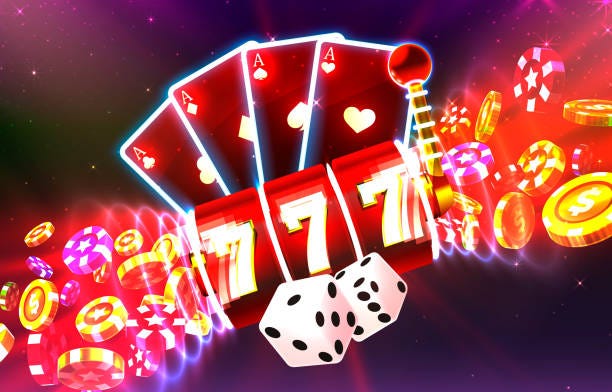Introduction:
The lottery, a game of chance that has captivated the human imagination for centuries, stands as a testament to the allure of instant wealth. Whether played for leisure, excitement, or the tantalizing prospect of winning a life-changing jackpot, the lottery has embedded itself into cultures around the world. In this article, we delve into the intricacies of the lottery, exploring its history, the psychology behind togel deposit pulsa 10 ribu, and the odds that define this game of luck.
A Brief History:
The roots of the lottery can be traced back to ancient civilizations. The first recorded lotteries date back to China around 200 BCE during the Han Dynasty, where the game was believed to fund public projects like the construction of the Great Wall. Over time, lotteries found their way to Europe and were employed as a means to finance public works and institutions. In the United States, lotteries were used in the 18th and 19th centuries to fund the construction of roads, bridges, and schools.
Modern Lotteries:
Today, lotteries come in various forms and are organized by both governments and private entities. From the iconic Powerball and Mega Millions in the United States to the EuroMillions in Europe, these games offer participants the chance to win life-altering sums of money. The appeal of the lottery lies not only in the potential financial windfall but also in the excitement and anticipation that accompany each draw.
Psychology of Playing:
The decision to play the lottery is influenced by a combination of factors, including hope, entertainment, and the allure of the unknown. Psychologically, the prospect of winning a lottery taps into the universal human desire for a better life. Even though the odds of winning may be slim, the dream of hitting the jackpot often outweighs the rational understanding of probability.
Odds and Probability:
Lotteries are notorious for their astronomical odds. The chances of winning the grand prize are typically minuscule, often in the range of one in millions or even billions, depending on the specific game. Despite these odds, millions of people participate, showcasing the enduring belief in the power of luck and the dream of a life transformed by a single ticket.
Impact on Society:
Lotteries, especially those operated by governments, play a role in generating revenue for public services. Funds generated from lottery ticket sales often contribute to education, healthcare, and infrastructure projects. However, the regressive nature of lottery participation, where those with lower incomes tend to spend a larger percentage of their money on tickets, raises ethical questions about the social impact of these games.
Responsible Gaming:
While the thrill of the lottery can be enticing, it is essential for participants to approach the game with a sense of responsibility. Lottery gaming should be viewed as a form of entertainment rather than a financial strategy. Setting a budget for lottery ticket purchases and understanding the odds can help individuals maintain a healthy and balanced approach to gaming.
Conclusion:
The lottery, with its rich history and global popularity, remains a fascinating phenomenon that reflects the human fascination with chance and fortune. As participants continue to engage in the excitement of lottery draws, it is crucial to balance the allure of winning with a realistic understanding of the odds. Whether seen as a game of luck, a financial contribution to public services, or a simple form of entertainment, the lottery continues to capture the imagination of individuals around the world, offering a tantalizing glimpse into the realm of possibilities that luck may bring.
